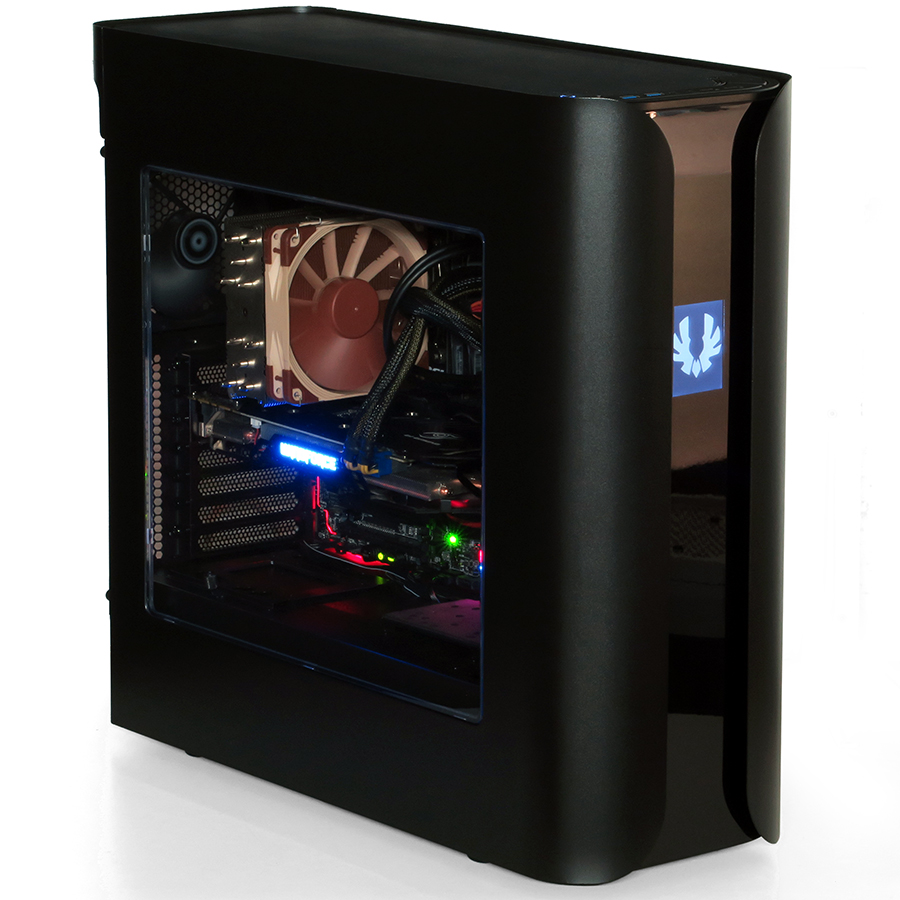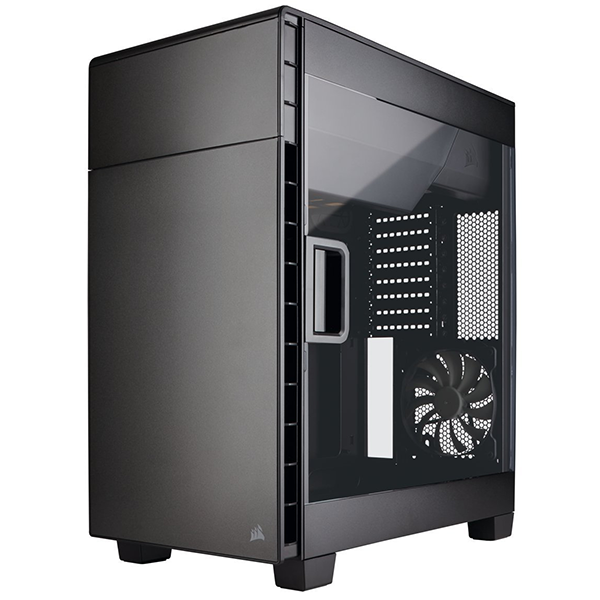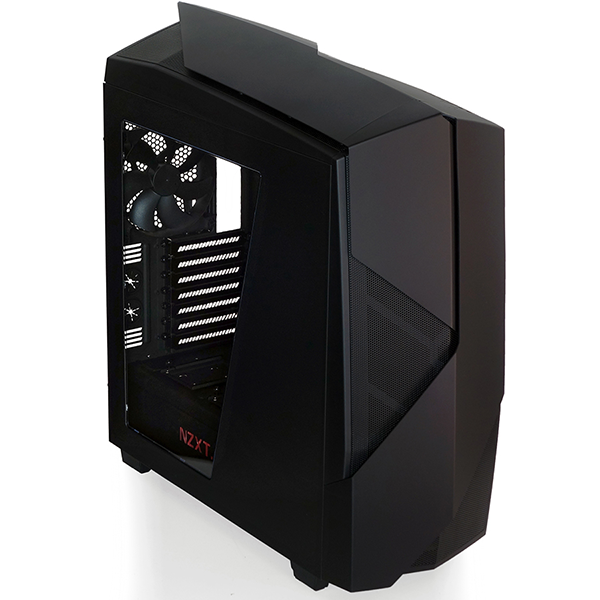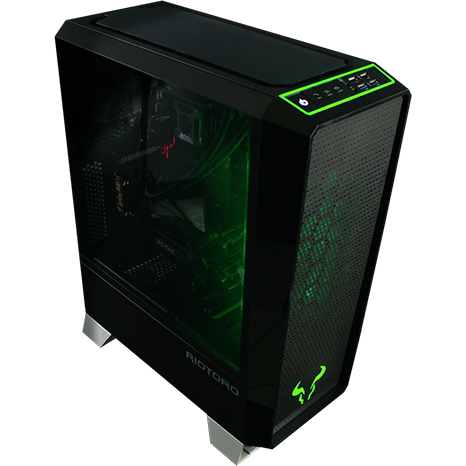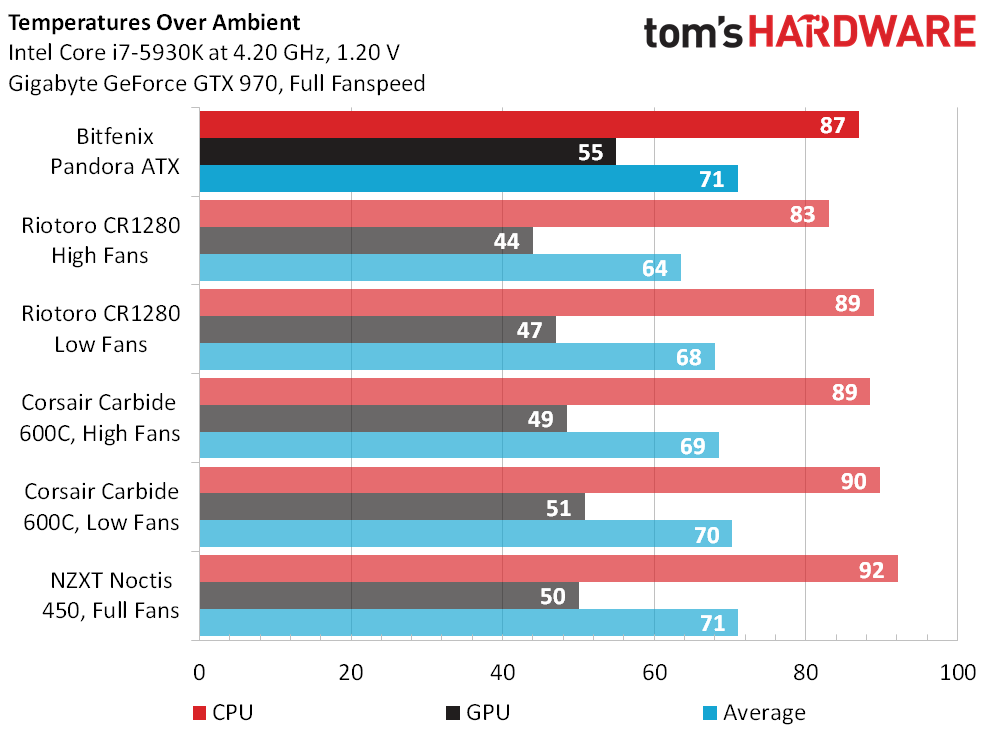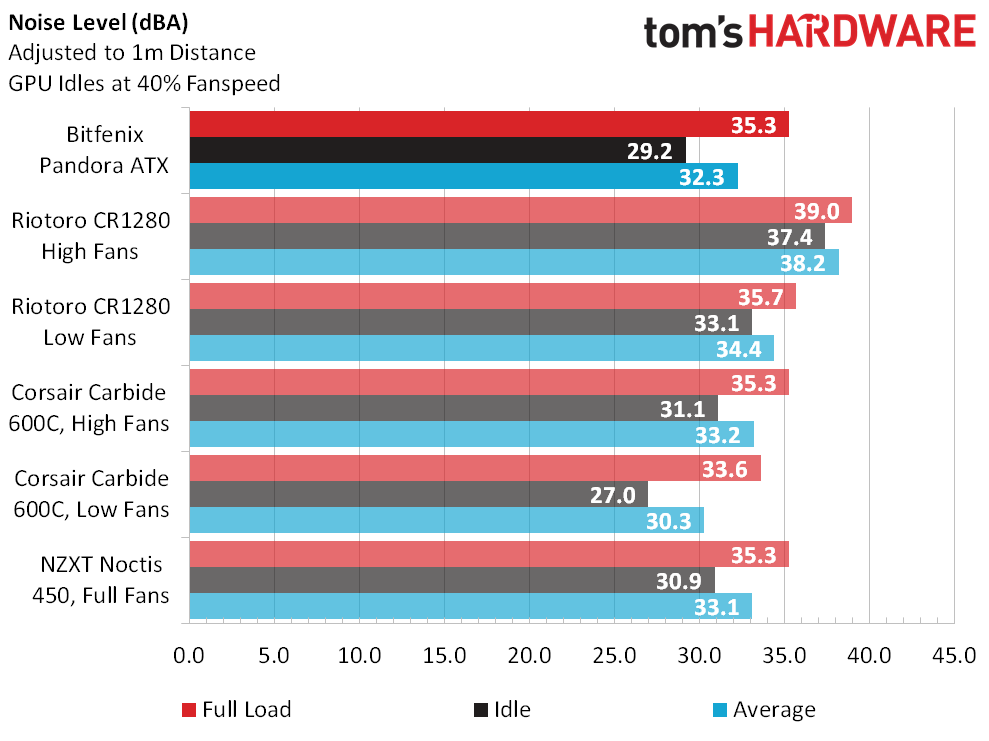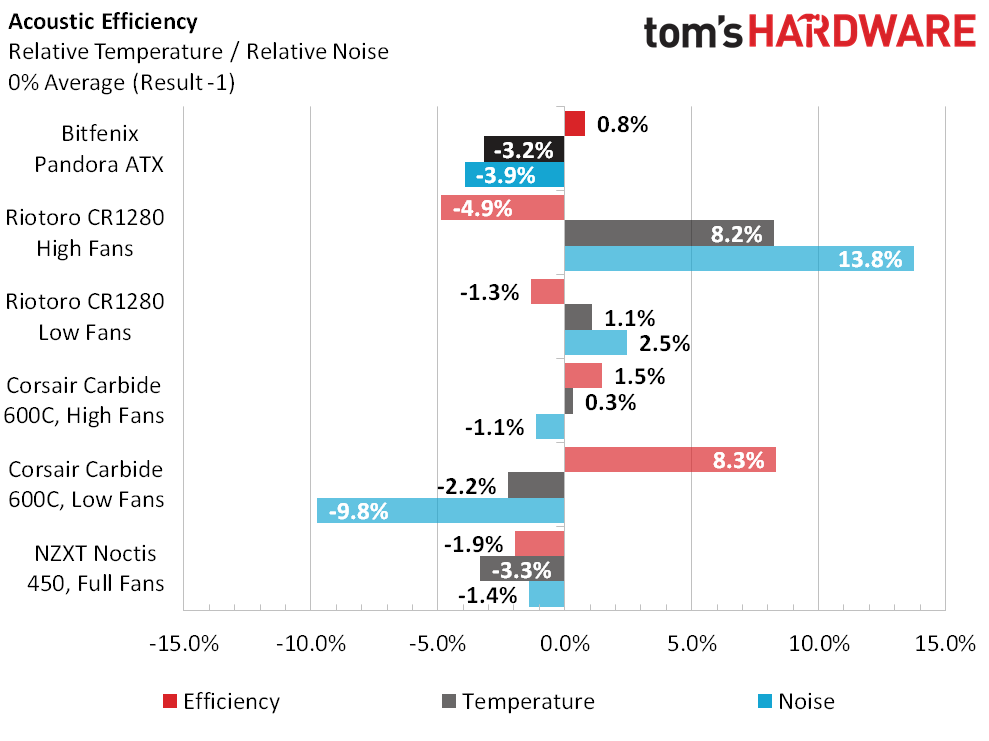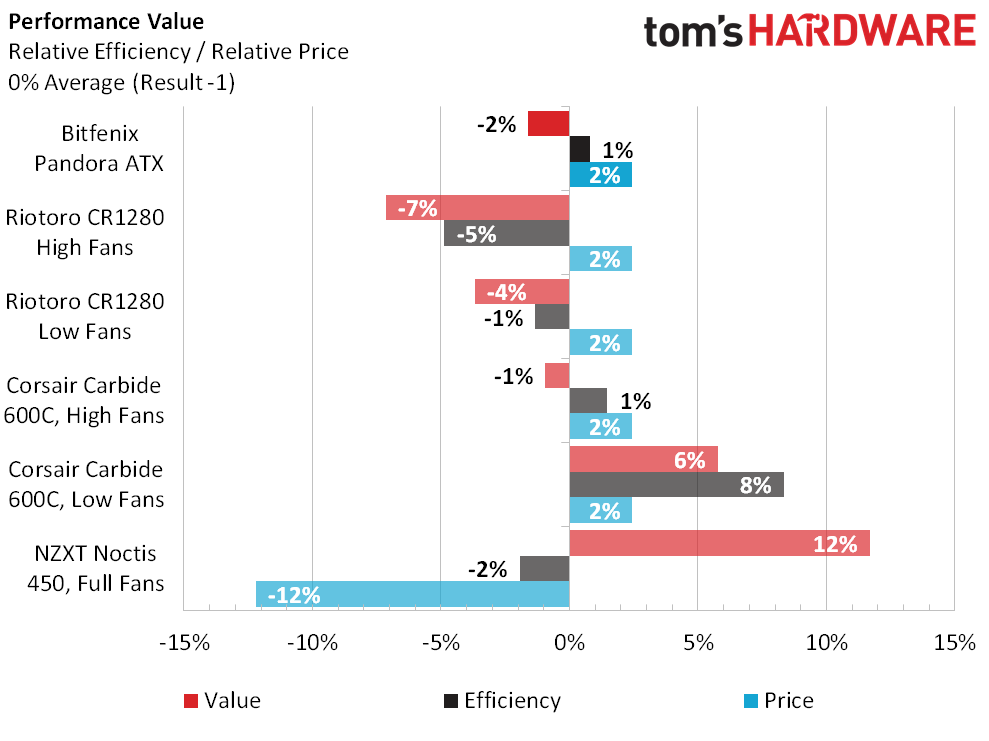BitFenix Pandora ATX Case Review
The Pandora ATX offers a surprisingly high-end feature at an equally surprising price. How well does the rest of the case stand up to its competitors?
Why you can trust Tom's Hardware
Test Results And Conclusion
The Pandora ATX looks fairly awesome built up, in spite of its ordinary sheet metal construction. The configurable logo certainly helps, as does the glassy appearance of the plastic face panel.
Here’s how the Pandora ATX stacks up dimensionally against the recently-tested $100-$140 enthusiast-market cases to which it’s compared.
| Header Cell - Column 0 | Bitfenix Pandora ATX | Riotoro Prism CR1280 | Corsair Carbide Clear 600C | NZXT Noctis 450 |
|---|---|---|---|---|
| Dimensions | ||||
| Height | 20.2" (51.3 cm) | 22.8" | 21.2" | 22.5" |
| Width | 8.0" (20.3 cm) | 9.9" | 10.3" | 8.7" |
| Depth | 22.2" (56.3 cm) | 18.9" | 18.3" | 21.5" |
| Space Above Motherboard | 2.5" (6.3 cm) | 2.5" | 2.2" Downward | 1.8" |
| Card Length | 16.3" (w/Fan) | 14.4" (w/Fans) | 14.6" | 11.6" |
| Weight | 21.9 lbs (9.9 kg) | 17.5 Pounds | 21.5 Pounds | 21.1 Pounds |
| Cooling | ||||
| Front Fans (alternatives) | 1x 140mm (3x 120 / 2x 140mm) | 2x 120mm (2x 140mm) | 2x 140mm (2x 120mm) | 3x 120mm (2x 140mm) |
| Rear Fans (alternatives) | 1x 120mm (None) | 1x 120mm (1x 140mm) | 1x 140mm (1x 120mm) | 1x 140mm (1x 120mm) |
| Top Fans (alternatives) | None (3x 120 / 2x 140mm) | None (3x 120 / 2x 140mm) | None (On bottom, up to 3x 120 / 2x 140mm) | None (3x 120 / 2x 140mm) |
| Left Side (alternatives) | None (1x 120mm) | None (None) | None (None) | None (None) |
| Right Side (alternatives) | None (1x 120mm) | None (None) | None (None) | None (None) |
| Drive Bays | ||||
| 5.25" External | None | None | Two | None |
| 3.5" External | None | None | None | None |
| 3.5" Internal | Four | Four | Two | Five |
| 2.5" Internal | Four +4* | Four +4* | Three +2* | Two +5* |
| Card Slots | Seven | Eight | Eight | Seven |
| Front Panel | ||||
| USB 3.0 | Two | Two | Two | Two |
| USB 2.0 | Two | Two | Two | Two |
| Audio | Head/Mic | Head/Mic | Head/Mic | Head/Mic |
| Fan Control | Two Speed Manual | Two Speed Manual | Three Speed Manual | Motherboard Extender |
| Other | LED Color | LED Color | None | None |
| Noise Damping | ||||
| Sides | None | None | None | None |
| Top | None | None | None | None |
| Front | None | None | None | None |
| Price | $140 | $140 | $140 | $120 |
| *Shared on 3.5" tray **w/o Center Cage ***By 5.25" Adapter Tray ^Slot 1-4 |
Notice that even though fluff has pushed the dimensions of some cases skyward, the above designs are very similar. Examples of fluff include unusable space between the chassis and shell or extra-tall feet. Comparing usable space to external dimensions, we could call NZXT’s Noctis 450 the fluffiest. Conversely, Riotoro’s Prism gets the full tower label in spite of other similarities, as both its eighth slot and 2.5” of top-panel radiator clearance turn its extra height into useable space.
Test System Components
Test System Configuration
| Test Hardware Configuration | |
|---|---|
| CPU | Intel Core i7-5930K (Haswell-E): 3.50 GHz, Six Cores O/C to 4.20 GHz (42x 100 MHz) at 1.20 V Core |
| CPU Cooler | Noctua NH-U12S |
| Motherboard | MSI X99S Gaming 7: LGA 2011, Intel X99, Firmware 17.8 (02/10/2015) |
| RAM | Crucial Ballistix Sport BLS2K8G4D240FSA 16 GB (4x 4 GB) DDR4-2400 Benchmarked at XMP CAS 16 defaults (1.20V) |
| Graphics | Gigabyte GV-N970G1 GAMING-4GD: GeForce GTX970 1178-1329 MHz GPU, GDDR5-7012, Maximum Fan for Thermal Tests |
| Hard Drives | Crucial MX200 CT500MX200SSD1 500GB SATA 6Gb/s SSD |
| Sound | Integrated HD Audio |
| Network | Integrated Gigabit Networking |
| Power | be quiet! Dark Power PRO 10 BN603 850W ATX 12V v2.3 / EPS 12V v2.92, 80 PLUS Platinum |
| Software | |
| OS | Microsoft Windows 8 Pro x64 |
| Graphics | Nvidia GeForce 347.52 |
| Chipset | Intel INF 9.4.2.1019 |
| Benchmark Configuration | |
| Prime95 v27.9 | 64-bit executable, Small FFTs, 11 threads |
| 3DMark 11 | Version: 1.0.3.0, Extreme Preset: Graphics Test 1, Looped |
| Real Temp 3.40 | Average of maximum core readings at full CPU load |
| Galaxy CM-140 SPL Meter | Tested at 1/2 m, corrected to 1 m (-6 dB), dBA weighting |
Comparison Cases
Test Results
We continue to use our standardized case testing configuration from over a year ago to generate comparable performance data over the course of many reviews. Noise is measured .5m from the case's front corner, on the side that opens. The numbers are corrected to the 1m industry standard -- used by many loudspeaker and fan manufacturers -- by subtracting six decibels.
Does simply designating a case "full tower" give it a performance advantage? Thermal results for the Pandora ATX's default settings fall between those of the Riotoro Prism's high and low fan settings.
The Pandora ATX walks all over the Riotoro Prism in our noise test, although even at full speed the Carbide 600C and Noctis 450 match its full-load noise isolation.
Anyone could build an open frame with noisy fans, so the true measure of case performance is how well it cools while remaining quiet. Or, perhaps, how quiet it is while remaining cool. Either way, the Pandora ATX beats all of its competitors at full fan speed, and falls behind the Carbide 600C’s cooling-to-noise ratio only when the Carbide’s fans are slowed.
Get Tom's Hardware's best news and in-depth reviews, straight to your inbox.
The Noctis 450 is cheap, so it still tops the Performance Value chart. Of course it doesn’t have any extra features, and the value of those features is in the eye of the buyer. For the same $140, the Pandora ATX provides a user-configurable lighted logo and unique design features, while the Prism CR1280 adds an eighth slot and extra internal clearance for both XL-ATX and EATX compatibility, and the Carbide 600C provides improved build quality and improved low-fan-speed performance.
MORE: Best CasesMORE: Cases in the News
MORE: All Case Content
MORE: Cases in the Forums
Follow us on Facebook, Google+, RSS, Twitter and YouTube.
-
redgarl I don't understand how something like that is good against any Phantek or Fractal Design cases.Reply -
Anathemata So the bottom line is: It's a decent enough case to buy if you like how it looks. If they integrated system status into the front-panel display then maybe it would have an edge up on competition on anything other than "hey, this would look cool on my desk".Reply
Even a criticism of the lack of a fan hub/controller is kind of moot since if you are going to buy this, you're going to buy it for how it looks and can shell out a little extra for a fan controller. -
Shot__ I don't think behemoth case (ATX) looks good on your desk, no matter how much sugarcoating vendor throws in. Electronics shrunk over decades, but PC components manufacturers seems failed to notice. For me personally even standard mATX is too big, I have mATX board + GTX 970 inside 11"x11"x7" enclosure. (I had to remove PS cover and ventilator to fit it). This little box is bolted to the wall beneath the desk, out of view.Reply
